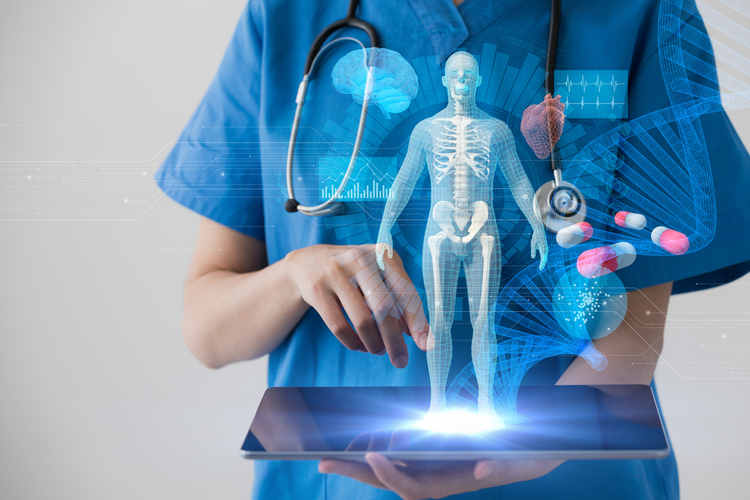
As technology continues to evolve each passing day, many of the industries are adopting new kinds of technologies. Since the recent past, the healthcare industry has relied upon the AR/VR tech to develop new techniques of treatment and analysis. In fact, experts believe that the use of augmented reality (AR) and virtual reality (VR) in the healthcare industry could yield $5.1 billion by 2025.
Augmented Reality (AR) and Virtual Reality (VR) are two of the most relevant tech available in the market for the healthcare industry. AR puts digital objects in the real world using sensors, cameras and displays. VR, on the other hand, creates a comprehensive computer-generated environment in which users can even interact with virtual objects.
The use of these two technologies has already provided many benefits to the medical practitioners in the diagnosis of the patients and analysis of health issues. However, the impact of AR and VR in the health industry can increase by many folds in the future.
The doctors and medical experts are using AR and VR tech in numerous operations in the healthcare industry since the past few years. For instance, AR is used to train medical students to perform surgeries. As witnessing a doctor perform a surgery is not always possible and feasible, many medical institutes use AR to help students perform step by step surgeries by providing numerous medical scenarios.
Psychological experts use VR to treat patients with Post Traumatic Stress Disorder (PTSD) by simulating an event that acts as a trigger for the patients. This helps PTSD patients to control their stress in times of triggers.
Apart from the above use cases, AR and VR have been used in treating brain injuries, minimising depression symptoms, treating phobias and learning about cancer in 3D. These examples prove that AR and VR technology can improve the healthcare industry extensively in the near future. The medical experts already see the potential of the technologies in the said industry and are looking forward to using more of these two in treatment, diagnosis and analysis.










